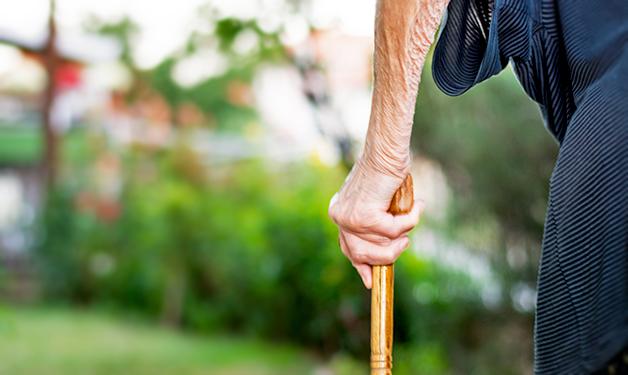
Keeping active over time can be important for cognitive function.
Can keeping up with your walking regimen protect your brain from the effects of aging? Dr. John Best, a researcher with Vancouver Coastal Health Research Institute, and his colleagues found good evidence that maintaining a walking routine can have protective effects on the physical structures and functionality of the brain.

Their study, published in the journal Neurobiology of Aging in September 2016, followed Americans 70 to 80 years of age at initial assessment who provided annual, self-reported information on their walking habits over the course of 10 years. A brain MRI was performed on 325 participants at year 10, with a second MRI performed on 162 of those participants at year 13.
“The design of this study is fairly unique because the annual walking assessments were followed by two MRIs,” says Dr. Best.
“Previous research has not really examined whether associations between walking and brain health are still evident for individuals who are in their mid to late 80s and early 90s.”
The results of the MRI scans from years 10 to 13 show that individuals who maintained their walking habits over the 10-year time period lost less grey matter and exhibited less diffusion of white matter—both of which occur naturally as we age and are known to lead to decreases in brain health and cognition.

The same was true for cognitive performance. “Individuals who maintained high levels of physical activity show better protection of cognition over time,” says Dr. Best. This includes the ability to remember information and follow instructions.
Research could shape the future of treatment
This study takes Dr. Best’s previous research on walking gait speed one step further by identifying how maintaining walking levels—walking is the most common form of physical activity among older adults—can also have a positive effect on the brain.
“Our findings suggest that the most important part of physical activity is not the level you start at, but actually how well you maintain physical activity levels.”
It is a promising finding, says Dr. Best, because up until now doctors had evidence to support the value of checking in with patients about their activity levels, but not necessarily about whether or not patients were maintaining the same level of activity as in the past.
This research could lead to better tracking of physical activity levels over long periods of time and the use of apps and electronic devices to log and store data.
Armed with data on a patient’s long-term physical activity levels, clinicians will have more tools to determine health outcomes and recommend interventions.
This study contributes to a growing body of evidence linking physical activity to better overall health. Dr. Best notes that future research could include what types of physical activity—such as aerobics, strength training or a combination of aerobics and strength training—produce optimal results.
As well, research is needed to more closely examine the health effect of physical activity combined with other healthy lifestyle interventions—such as changes in diet or brain training and socializing.
“We are getting closer to mitigating brain and cognitive decline,” says Dr. Best. “Research is helping us determine how to manage the natural changes in the brain that happen as we age.”


